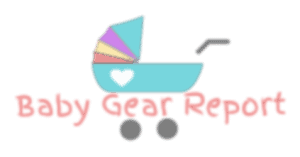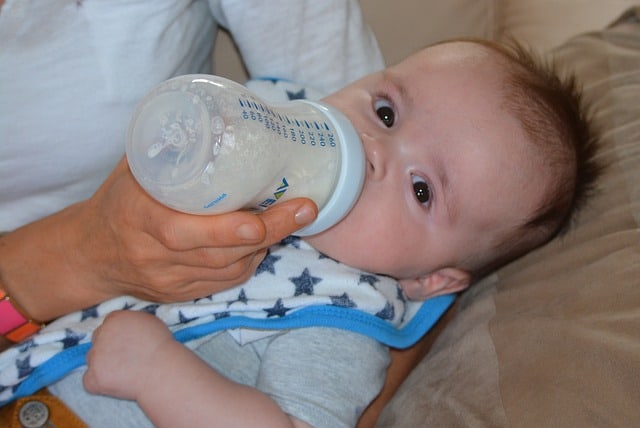Plastic baby bottles…such controversial little things. They are so convenient, appearing to be the easy choice. It is only after more research do you find that things are not what they appeared to be on the surface.
These bottles offer so many benefits to parents that they are hard to say no to. I encourage you to research them carefully to evaluate the benefits and drawbacks and decide whether they are the right option for you and your baby.
So what exactly are plastic baby bottles?
Plastic baby bottles are a type of container used to feed infants and young children. They are made of plastics, such as polypropylene or polyethylene, and have a wide mouth to make it easy to fill with liquid.
Plastic baby bottles have a nipple on the top, which is designed to allow the baby to suck the milk or formula through. Most plastic baby bottles also come with a cap that helps keep the milk or formula fresh and prevents spills.
Are plastic bottles good for babies?
No, not really. Research has shown that plastic baby bottles can expose babies to harmful chemicals. This is a controversial topic among parents, and parents must carefully weigh the benefits and drawbacks.
When it comes to feeding their babies, many parents are concerned about the safety and health benefits of different types of bottles. Plastic bottles are one of the most popular choices for feeding infants, as they are usually lightweight, durable, and affordable.
However, plastic bottles have some drawbacks. They can retain odors and stains, which can influence everyone’s enjoyment of feeding time. They can leach harmful chemicals like BPA, BPS, and BPF into a baby’s milk. And they wear out relatively quickly.
into a baby’s milk. And they wear out relatively quickly.
Ultimately, each family needs to decide what type of bottle is best for their baby based on their own needs and preferences. Plastic bottles are a popular choice for many families because they are lightweight and affordable; however, glass or silicone may be a better option for those who want to avoid any potential concerns about chemical leaching from plastic.
What are the benefits of plastic baby bottles?
- Inexpensive and easy to find
Plastic baby bottles are the most common type out there right now. They are cheap and easy to produce, so manufacturers make them in abundance and ship them everywhere.
You can find them in probably every department store, grocery store, and probably many convenience stores. There are even more varieties of bottles available online.
It is a great benefit to know that even if you are traveling and lose your bottles, you will be able to find replacements in any city, or town (assuming the town has a store).
- Lightweight and easy to carry
Many plastic baby bottles are made from polypropylene or polyethylene, which are both lightweight materials that provide durability and strength.
They also come in an array of sizes and shapes, making them easy to store in any bag or diaper bag, as well as being able to fit into a variety of cup holders in vehicles.
When compared to glass baby bottles, plastic baby bottles are much more lightweight and durable. This makes them ideal for parents who want to travel with their children but don’t want to worry about the risk of breaking a glass bottle.
- A variety of designs and sizes
Since plastic bottles are the most common type of bottle used, your choices seem endless. There are so many shapes, sizes, designs, themes, and cute (or gimmicky) features.
When you search around there’s no doubt there will be one that fits your style, your baby’s feeding preferences, and will bring a smile to your face when you go to feed your baby.
- Durable
Plastic bottles are very durable and are not likely to break. Unlike glass bottles, they have some flexibility to absorb impacts without shattering.
However they also wear out much faster than glass bottles, and therefore will need to be replaced much more often. They’ll likely see your baby through to weaning, but are not likely to be used for multiple babies.
- Easier for baby to hold
Plastic bottles are thin and lightweight. They don’t have the heaviness of other materials, so a baby will be able to learn to hold the bottle themselves fairly quickly. This is a blessing for those tired night-time feedings, or afternoon feedings with your baby propped on a pillow.
- Recyclable
When your baby no longer needs their bottles, those bottles can be recycled and kept out of the landfills. We can’t guarantee that all bottles are recyclable, so be sure to check yours, but generally speaking they will be recyclable.
What are the drawbacks of plastic baby bottles?
- Non-biodegradable
Plastic baby bottles are made from polycarbonate, a type of plastic that does not break down over time, meaning it can linger in the environment for years and even centuries.
This is a major drawback for the environment and something that should be taken into consideration when using these bottles. So we strongly encourage you to recycle plastic bottles when they have reached the end of their life.
- Likely contains chemicals
The polycarbonate used to make plastic baby bottles contains chemicals to make them hard and clear. These chemicals can potentially leach out of the bottle and into your baby’s milk. There is evidence that these chemicals can cause health problems later.
that these chemicals can cause health problems later.
Prior to 2012, it was common to find baby bottles with the chemical BPA. However in that year the FDA banned BPA from baby bottles and sippy cups. After that though, BPA was replaced with chemicals like BPS and BPF.
So if you are using plastic bottles, they likely have chemicals of some type that can contaminate your baby’s bottle. There are steps you can take to minimize this though.
- Can be hard to clean
Even with the best of intentions, plastic baby bottles can be difficult to clean perfectly. This means that bacteria can linger in the bottle, leading to the potential for contamination and illness for your little one. If the bottle is not cleaned properly, it can also lead to a bad taste in the milk or formula.
It is easy for plastic bottles to retain odors and stains, making them look and smell dirty no matter how much you wash them. This can be minimized by washing them quickly after feedings and minimizing as much as possible the time that your baby’s milk remains in the bottle.
- Shorter lifespan than other bottle materials
Plastic bottles are common because they are inexpensive and easy to mass produce. They were not designed for a long life, and will likely wear out after one or two babies. You can read more in my post here about reusing baby bottles for a second baby.
about reusing baby bottles for a second baby.
- Shouldn’t heat milk while in the bottle
Heat is one of the triggers for causing potentially harmful chemicals from leaching from the bottle’s plastic into the milk. Therefore you should minimize the amount of heat the bottle absorbs as much as possible.
When heating your baby’s milk, you should heat it in a container that isn’t plastic. Just before you feed your baby, then you should move the milk into the bottle.
Are plastic baby bottles better than glass?
Plastic bottles are far more affordable and convenient than glass bottles. However parents must weigh that against the potential health impacts plastic bottles may cause, such as harmful chemicals leaching into your baby’s milk.
You can read my post all about glass bottles here .
.
I can’t speak for your specific situation, but I’m confident that after you read the benefits and drawbacks of each, you will know which is better for you.

